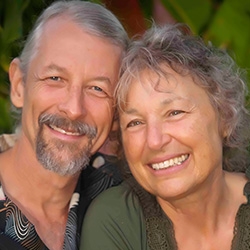

NVC Resources on Feelings
-
Explore the similarities and differences between NVC and Inner Relationship Focusing.
-
Are you finding yourself grappling with the NVC model despite your familiarity or practice? Do you often feel stuck or find it challenging to make it feel natural or authentic in your interactions?
Let CNVC Certified Trainer, Dian Killian, guide you towards embodying the essence of NVC—a mindset of connection and collaborative engagement. Through her expertise, you'll discover invaluable insights tailored to make your NVC practice truly your own. From uncovering intuitive methods to discern feelings and needs, to seamlessly integrating NVC principles into your everyday speech, Dian empowers you with insider tips for authentic connection.
-
Trainer Tip: Using NVC as a tool to transform our judgments can revolutionize our perceptions and relationships.
-
Rita Herzog shares how to stay true to your needs while extending empathy in family relationships.
-
Kelly Bryson shows how clear intention and awareness transform pain into growth.
-
Join CNVC Certified Trainers and Mediators Jori and Jim Manske in an exploration of using Nonviolent Communication in the context of Mediation and Conflict Resolution.
-
Mismanaged emotional pain can compound and hurt ourselves and others. Four ways we can mismanage pain are: denial, blame, depression, and escape/numbing. This can result in hatred, resentment, discrimination, revenge, anger, and more problems. The fifth way we can deal with pain is to confront the pain acknowledging it and dealing with our unmet needs. This is a more direct path. Read on for more ideas for how to handle the pain.
-
Trainer Tip: When we feel resentment toward others, we are harming our own emotional health. Surprisingly, when we own up to our part of an uncomfortable situation, we can release the pain and resentment. Such honesty can provide healing. Read on for a related anecdote of how this can play out.
-
Trainer Tip: Instead of trying for perfection, let’s try safe experimentation: Acknowledge that whenever we try a new behavior, it’s bound to take us a few times before we get it right. Read on for how we can do this. We'll use learning empathy as an example.
-
Trainer Tip: NVC asks us to be aware of our needs and discomfort is evidence of an unment need. However focusing on ourselves when we're uncomfortable isn't always the best choice.

Quick Links
Subscription Preferences
Stay In Touch!
Looking for ways to keep up with NVC Academy news, get special offers, free resources, or words of inspiration? Here are five ways to stay engaged:










